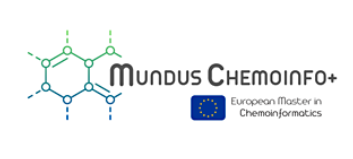
|
||
(Person in charge: A-C Camproux)
Python I programming (3 ECTS)
Persons in charge: P. FUCHS & P. POULAIN
Program :
- Main data types (integers, floats, lists, strings, dictionaries, tuples)
- Loops, comparisons, tests
- Modules
- Input/output management with files
- Functions
- Regular expressions
- Notion of classes in Python
Targeted skills :
Training bioinformaticians in Python programming.
Know the main concepts related to Python programming.
Be able to write programs (i) analyzing large amounts of data, (ii) producing data (e.g. simulation of a system).
Be able to develop/debug a program in Python.
Python II programming (3 ECTS)
- Main data types (integers, floats, lists, strings, dictionaries, tuples)
- Loops, comparisons, tests
- Modules
- Input/output management with files
- Functions
- Regular expressions
- Notion of classes in Python
Targeted skills :
Training bioinformaticians in Python programming.
Know the main concepts related to Python programming.
Be able to write programs (i) analyzing large amounts of data, (ii) producing data (e.g. simulation of a system).
Be able to develop/debug a program in Python.
Python II programming (3 ECTS)
Persons in charge: P. FUCHS & P. POULAIN
Objectives in terms of knowledge :
Train bioinformaticians in Python programming. Acquire autonomy in the development of a Python program. Python is the most widely used programming language in bioinformatics today, especially for data analysis. It is very much in demand in laboratories, but also in private companies.
Program :
- Main data types (integers, floats, lists, strings, dictionaries, tuples)
- Loops, comparisons, tests
- Modules
- Input/output management with files
- Functions
- Regular expressions
- Notion of classes in Python
Targeted skills :
Know the main concepts related to Python programming.
Be able to write programs (i) analyzing large amounts of data, (ii) producing data (e.g. simulation of a system).
Be able to develop/debug a program in Python.
Python project (3 ECTS)
Train bioinformaticians in Python programming. Acquire autonomy in the development of a Python program. Python is the most widely used programming language in bioinformatics today, especially for data analysis. It is very much in demand in laboratories, but also in private companies.
Program :
- Main data types (integers, floats, lists, strings, dictionaries, tuples)
- Loops, comparisons, tests
- Modules
- Input/output management with files
- Functions
- Regular expressions
- Notion of classes in Python
Targeted skills :
Know the main concepts related to Python programming.
Be able to write programs (i) analyzing large amounts of data, (ii) producing data (e.g. simulation of a system).
Be able to develop/debug a program in Python.
Python project (3 ECTS)
Persons in charge: S. Murail
Program :
Know the main concepts related to Python programming.
Be able to write programs (i) analyzing large amounts of data, (ii) producing data (e.g. simulation of a system). Be able to develop/debug a program in Python.
Be able to develop a project in Python in the context of drug design or structural bioinformatics projects.
Targeted skills :
Training in Python programming or/and carrying out projects in Python (advanced level in the context of drug design or structural bioinformatics projects).
Know the main concepts related to Python programming.
Be able to write programs (i) analyzing large amounts of data, (ii) producing data (e.g. simulation of a system). Be able to develop/debug a program in Python.
Be able to develop a project in Python in the context of drug design or structural bioinformatics projects.
Targeted skills :
Training in Python programming or/and carrying out projects in Python (advanced level in the context of drug design or structural bioinformatics projects).





